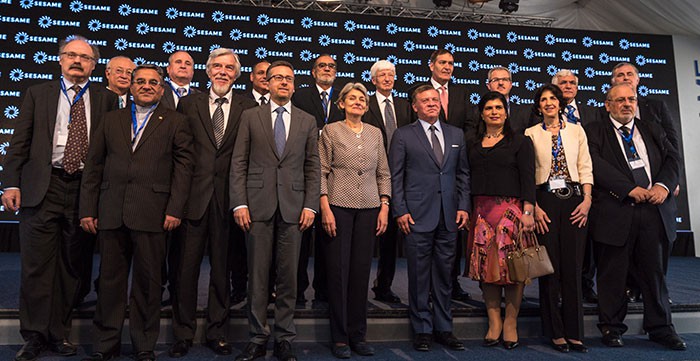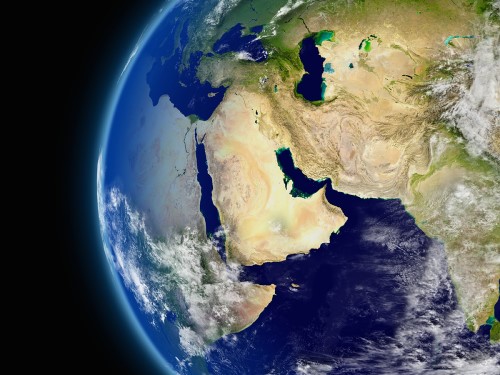The Arab Physical Society (APS) is hosting its first-ever event today, 7 April 2022, just 10 months after the organisation was founded. The one-day online conference features a welcome address by Prince El Hassan bin Talal of Jordan as well as talks by leading physicists, including three Nobel laureates.
The APS is a non-governmental, non-profit organisation that seeks to promote physics in countries that have Arabic as an official language. Since its formation on 7 June 2021, the APS has been building its organisational structure, setting up a member-registration process as well as electing a seven-member advisory committee.
The founding president of APS is Shaaban Khalil, a high-energy physicist who is currently director of the Fundamental Physics Center at the Zewail City of Science and Technology in Egypt. The advisory committee consists of physicists at universities and institutes in Egypt, Jordan, Libya, Morocco, Palestine, Qatar and Syria.
At today’s event Takaaki Kajita, who shared the 2015 Nobel Prize for Physics with Arthur McDonald, will discuss his work on neutrino oscillations. Fellow Nobel laureate Gerard t’Hooft, who shared the 1999 prize with the late Martinus Veltman, will examine the foundations of quantum physics and the Standard Model of particle physics.
The Arab Physical Society and this inaugural event will help physics in the region gain international visibility and consolidate links between physicists.
John Ellis, King’s College London
The third Nobel laureate to speak is Roger Penrose, who shared the 2020 Nobel prize with Reinhard Genzel and Andrea Ghez for their work on black holes. Other presenters include Claudia Felser from the Max Planck Institute for Chemical Physics of Solids in Germany and theorist John Ellis from King’s College London, UK.

SESAME synchrotron opens for users
Ellis told Physics World that physics in the Middle East has been advancing in recent years. The progress has been aided by the construction of the SESAME synchrotron near Amman, Jordan, as well as the founding of the King Abdullah University of Science and Technology in Saudi Arabia. Other initiatives include regional participation in experiments at the CERN particle-physics lab near Geneva, spearheaded by Morocco and Egypt.
“The establishment of the Arab Physical Society and this inaugural event will help physics in the region gain international visibility and consolidate links between physicists across the region,” says Ellis. The APS is, according to its website, also keen to foster diversity “to ensure that everyone has the same opportunities, regardless of gender, ethnicity, religion and culture”.
